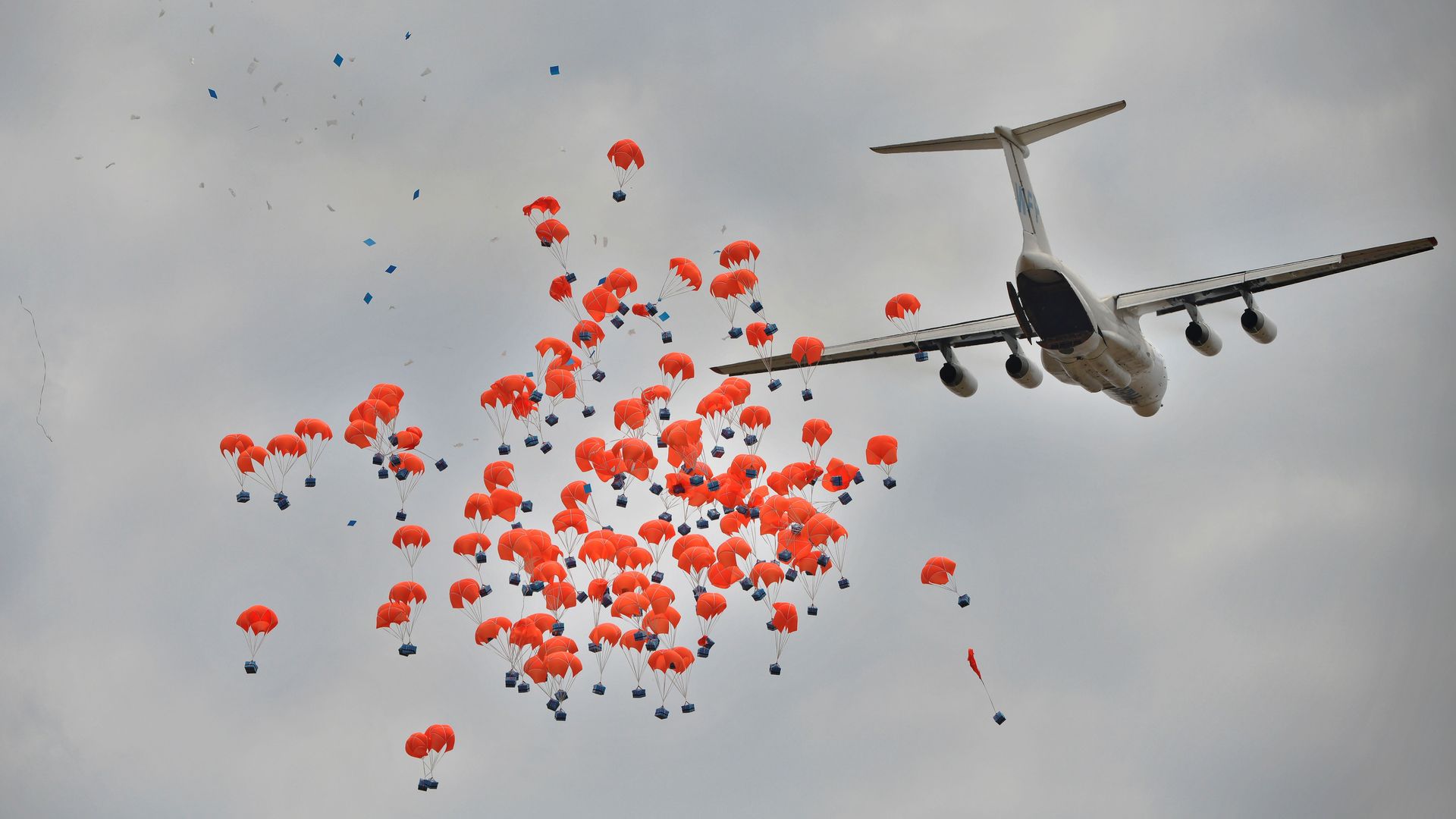The great pandemic airlift is running out of money
Add Axios as your preferred source to
see more of our stories on Google.

A WFP plane drops food aid in South Sudan in February. Photo: Tony Karumba/AFP via Getty Images
The pandemic is not only making it harder for people in developing countries to afford food, it's making it harder to get food and supplies into those countries in the first place.
Zoom in: The UN’s World Food Programme (WFP) is tasked with filling many of those gaps, supplying food aid to 100 million people. Since late March, it has also been transporting health workers, medical supplies and other humanitarian cargo all over the world through its Humanitarian Air Service.
“At some point we ended up being the largest airline flying, in a way,” Amer Daoudi, who oversees logistics for WFP, tells Axios.
- They’ve established regional hubs in Asia, Africa and Latin America. More than 120 countries are expecting supplies just in the next six weeks.
- “Basically today, in many countries around the world, we’re the only game in town,” Daoudi says. That applies to getting supplies in, and getting evacuees out.
- The supplies are provided at no cost to the local country — particularly important given the well-documented phenomenon of wealthier countries outbidding poorer ones for PPE and medical equipment.
There’s a problem. “By the third week of July, unless we urgently receive funding, we will have to suspend our services," Daoudi says.
- He'll be sounding the alarm on Friday at the UN, calling on both donor countries and the private sector to step up.
- “I keep warning, don't look at Europe easing up and think we have seen how bad the situation will get with this virus,” he says, noting that case counts are going up in the developing world.
What to watch: WFP director David Beasley, meanwhile, is warning of a possible "hunger pandemic," with famine spreading to up to 35 countries and the number of hungry people worldwide doubling.
- The pandemic is deepening poverty, which breeds hunger, which leads to cycles of migration and instability.
Go deeper: South Asia emerges as a coronavirus hotspot
